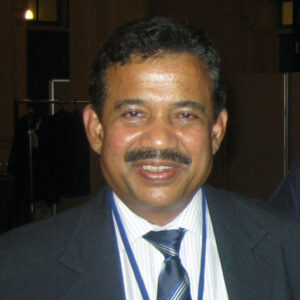 It was an honour to take the responsibility of the President of the Asian Sleep Research Society (ASRS) from illustrious colleague Prof Masako Okawa and the renewed faith on me to carry forward another term. On behalf of the newly elected Council, I would like to place on record our deep sense of appreciation and gratitude for the outgoing Council for their outstanding contribution to the growth of ASRS. We will continue to seek support and guidance of all Asian sleep scientists, chronobiologists and clinicians in all important matters. At the same time, please join me in extending a warm welcome to the newly constituted ASRS Executive Body.
It was an honour to take the responsibility of the President of the Asian Sleep Research Society (ASRS) from illustrious colleague Prof Masako Okawa and the renewed faith on me to carry forward another term. On behalf of the newly elected Council, I would like to place on record our deep sense of appreciation and gratitude for the outgoing Council for their outstanding contribution to the growth of ASRS. We will continue to seek support and guidance of all Asian sleep scientists, chronobiologists and clinicians in all important matters. At the same time, please join me in extending a warm welcome to the newly constituted ASRS Executive Body.
I had the unique opportunity to serve ASRS in various capacities in the past. When the idea of establishing ASRS in the 90s was conceived by Prof Shojiro Inoue, Prof Liu Shiyi, Prof Mohan Kumar and others, I was just beginning my career in neuroscience and sleep medicine was in its infancy. Indeed, it is a great experience to witness the role played by ASRS since its inception in 1994. I have attended almost all the ASRS Congresses. It has been a great experience to interact with peers, investigators, young researchers and old friends in these meetings. Now we will be meeting after every two years, which is a welcome change for both organizers and participants.
We just concluded the 10th ASRS Congress in Istanbul, organized by Dr Murat Aksu and his colleagues. It was due since 2016 and unforeseen circumstances pushed it to 2023. I take this opportunity to congratulate him and his team for organizing the outstanding scientific sessions and social events during the Congress in the historical city of Istanbul.
The world of sleep science is going through a challenging phase. The merger of World Sleep Federation and World Association of Sleep Medicine in 2019 to World Sleep Society is a significant step for global growth of sleep science and sleep medicine. There is a exponential growth in sleep medicine because of clinicians interest and affinity for obstructive sleep apnoea and its management. The outcome of the historical ASRS Governing Council meeting in Istanbul on March30, 2023 has led us to rediscover ourself that ASRS is primarily a society of sleep researchers. The ASRS aims to integrate all important Asian players with an interest in sleep research and sleep medicine at the basic and clinical level, including individual researchers, National sleep societies, and sleep care related organisations.
After the award of Nobel prize in 2017 on molecular mechanism of our biological clock, there is a renewed interest in role of circadian biology in health and diseases. Those who sleep on time and get up on time live healthy and longer.
Asia is the largest continent in the world with the largest population. However we do not have an independent representation in World Sleep Society. Asia is clubbed with Australia. The ASRS needs to create task forces to explore the possibility of helping those Asian countries where sleep physicians and sleep scientists are in less number. There are no formal sleep societies in many of these countries, although some individuals are practicing sleep medicine.
The Indian Society for Sleep Research (ISSR) is organizing the 11th ASRS Congress in New Delhi, India during February 8-9, 2025. It will be a joint meeting of ASRS, Asian Forum on Chronobiology and triennial conference of ISSR. I invite you all to New Delhi in large number for a great scientific, yogic and culinary voyage.
Dr Hrudananda Mallick
